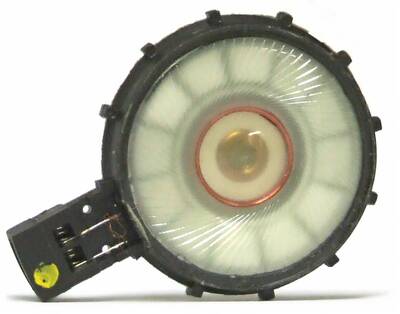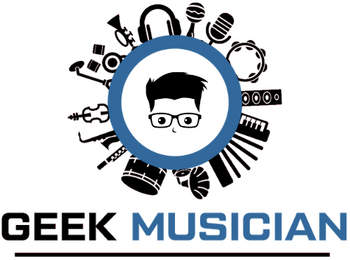
Perhaps you love listening to bass-heavy music like trance, or maybe you simply love to boost the bass frequencies with EQ, but you don’t want to risk damaging your expensive headphones. Well, you are not alone. After I noticed an unusual behavior with my studio headphones, I decided to research this topic. Here is what I found?
Can bass damage headphones? Bass, at an acceptable volume, will not damage a headphone. However, at a very loud volume, bass can easily damage headphones. However, if your headphone is bass-heavy and can handle low frequencies extremely well, this will not be an issue.
We’ll take a look at how bass damages headphones and the effect bass boost has on a pair of headphones. We’ll also discuss some of the things that can cause harm to headphones and how to keep your headphones.
Table of Contents
How can Bass Damage Headphones?
Headphones are made of a component known as the headphone driver. This is the most important component in a headphone. It receives electrical audio signals from the device the headphone is connected to and converts that into sound for you to listen to. You can think of headphone drivers as tiny speakers.

Headphone drivers come in different form factors depending on the manufacturer. And the difference affects their overall performance and how capable it is at reproducing sounds accurately. For instance, a bigger headphone driver can produce louder sounds than smaller headphone drivers.
Headphone drivers made these days have a really good low-frequency response, so they can reproduce bass in a song quite well. However, the problem comes when the bass is too loud.
Generally speaking, extremely loud music can break your headphones, but bass-heavy music will break the headphones even faster. But why is it so?
As you may already know, when it comes to audio, bass exists at the lower frequencies, usually between 20Hz – 160Hz. Because of the human hearing range, the bass is much quieter when played together with other musical components in a song.
For this reason, headphone drivers are designed in a way that they supply more power and air to lower bass frequencies so they can be heard as much as the higher frequency components in a song. In essence, the bass is played much louder than the other components in a song by headphones and speakers in general.
This is why the bass in a song sometimes causes vibrations in a headphone or speaker. The drivers work extra hard to playback low frequencies.
So what happens when the bass is loud?
The more you increase the volume, the more stress you put on the headphone driver. So when the sound source is loud, it will require even more power to playback the bass, which means there will be more vibration of the headphone driver.
When the loudness exceeds the headphone driver’s limit, you will notice a distortion in the audio playback. This signifies that you need to reduce the volume; else, your headphones will break in no time.
Cheaper headphones are susceptible to bass damage more than expensive ones. That’s because cheap headphones usually have a smaller headphone driver, which means they can’t handle loud sound sources and bass really well. However, most of the expensive headphone drivers have a larger headphone driver and can handle extremely loud sound sources and bass without any issue.
An excellent bass-heavy headphone such as the Audio Technica ATH WS110iS Headphone (on Amazon), for instance, will not have any problem with bass-heavy and loud music. That’s because it has 53mm headphone drivers — much bigger than most standard headphones.
With such a headphone, you should be concerned with damaging your ears rather than the headphones.
There are also a few high-end headphones that have multiple headphone drivers. A very popular headphone with multiple headphone drivers is the 1MORE Triple Driver (also on Amazon).
Just as the name depicts, this headphone has three drivers in each earpiece. One driver is dedicated to the low frequencies or bass, and the remaining two are for the high and mid frequencies. This gives the headphones enough headroom to accommodate loud bass without distorting and possibly breaking.
Can Bass Boost Damage Headphones?
Short answer, no. Bass boost will not damage headphones. They will certainly increase the volume of the low frequencies, but it won’t get loud enough to damage or break a pair of headphones.
Just as I explained earlier, many headphones can handle bass frequencies very well. Even some of the cheaper headphones available today have excellent low-frequency response. Boosting the bass with an Equalizer simply means you want to have more bass played by the headphones.
And yes, the headphone driver will use more power and air to playback the bass so that it becomes louder. However, the bass volume added by an EQ is not high enough to surpass most headphone driver’s threshold.
Here is when a bass boost can damage a headphone.
When the music is loud, and you boost the bass, that may break the headphone. Make sure you pay attention to playback. If it sounds distorted, you are definitely pushing the headphone beyond its limit, and you need to reduce the volume.
Also, it’s best practice to EQ down instead of EQ’ing down. What do I mean by this?
If you want more bass in a headphone, it’s good practice to reduce the mid and high frequencies instead of boosting the low frequencies. This will prevent any possibility of bass boost damaging your headphone.
Other Factors that can Damage a Headphone (and How to Prevent them)
Just so you know, several other factors can damage a headphone, not only loud bass. If your headphone is damaged, it could be any of these factors, so you must be aware of them so that you can handle your headphones properly to avoid any of these issues.
1. Extremely high volume
We have already talked about this a few times in the article, but let me rehash it again. Extremely loud music can damage your headphones. If the music you are listening to sound distorted, or you are having pains in your ear listening, chances are that the volume is way too high, and you need to reduce it.
You may not only risk damaging your expensive headphone, but you can easily damage your ear as well. So, pay close attention to how loud you listen to music.
I highly recommend you stick to the headphone volume limit on your smartphones. Although your headphones may work just fine, you risk damaging your ears.
Also, if you are a mix engineer who mixes music with headphones, you should always keep the volume at an appropriate level to prevent ear fatigue.
2. Exposure to sweat and moisture
It’s no news that most people use headphones during workouts, and for the most part, they are exposed to sweats. However, headphones, just like any other electronic device, is susceptible to moisture. Once the electronic components inside the headphones get into contact with water or any moisture, the headphones will break in no time.
So it’s good practice to avoid using your headphones in the rain, using it right after taking a shower, or exercising with them if you can. If you enjoy exercising while listening to music, then you should get a headphone for sport and exercise.
An excellent option you can pick up right now is the Plantronics Backbeat Fit 2100 Headphones (on Amazon). It’s a wireless headphone, which makes it ideal for exercising, and also sweatproof and water-resistant. This makes it ideal for the gym, as well as outdoor running and cycling.
3. Broken Headphone Cords
Most headphone problems are caused by the cord. There are several ways a cord can break. Tripping over long headphone cords, winding the cords the wrong way, and pulling the cord instead of the plug when disconnecting the headphone are all ways to easily break headphone cords.
These are all issues that can be easily resolved with a little bit of caution. One way to keep your headphone and cord safe when not using it is to get a travel case for it. Most headphone travel cases are shock-absorbent and will protect the cord from breaking. You should definitely get one for your headphones.
Conclusion
Most headphones can playback bass without them breaking. However, when the bass is extremely loud, it can cause them to damage in no time.
Loud bass causes headphone drivers to vibrate excessively, which distorts the audio signal and eventually breaks.
There is a follow-up on this subject on how bass can damage loudspeakers. I highly recommend you check it out. There are a ton of things to learn from that post.

Hi, I’m Raymond. A keyboard player, music producer, and writer. And I’m also the founder of this blog. As someone who has been working with several audio and music equipment and different musicians for many years, my goal is to answer all your questions on music and equipment, as well as the latest music software and technology. For more info, check out my about me page
